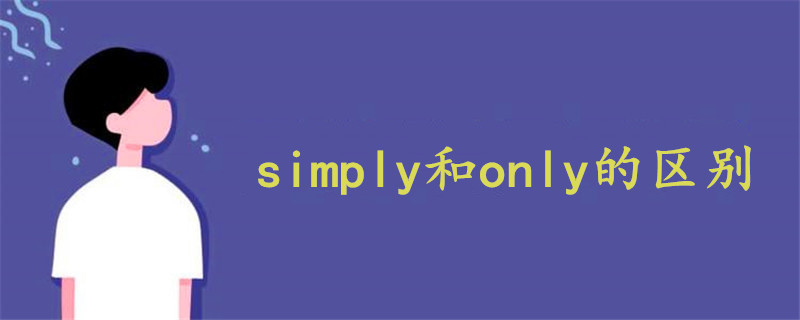simply和only的区别:含义不同、词性不同、用法不同。simply只作副词,含义为仅仅、不过、确实、简直等,可强调简单或某种说法,常用于句中或句末;only可作形容词、副词和连词,含义有但是、唯一的等,可用于句首倒装,或句中句末均可。

一、simply的含义及用法
simply作为副词,意为(强调简单)仅仅,只,不过;(强调某说法)确实,简直;简单地。
例句:Simply add hot water and stir.
只需加上热水搅动就行。
You simply must see the play.
那出戏你真得看看。
The book explains grammar simply and clearly.
这本书对语法解释得简明扼要。
The rooms are simply furnished.
房间陈设简朴。
二、only的含义及用法
1、作为形容词,意为仅有的;唯一的;最好的;最适当的。
例句:She's their only daughter.
她是他们的独生女。
She's the only person for the job.
她是这项工作最合适的人选。
2、作为副词,意为只;只有;仅;仅在…情况下(或地点等);只不过;仅…而已。
例句:There are only a limited number of tickets available.
剩下的票数量很有限。
I agreed, but only because I was frightened.
我同意了,但只是因为我受到了恐吓。
3、作为连词,意为不过;但是;可是。
例句:I'd love to come, only I have to work.
我很想去,但是我要上班。
It tastes like chicken, only stronger.
这东西尝起来像鸡肉,只是味道浓一点。










